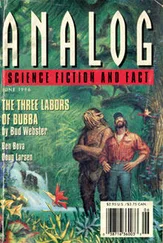“Have you ever seen anything so beautiful?” Cathy had whispered. “It’s like Narnia.”
“Do you think you could live here?” he remembered asking, as they walked behind the auctioneer to where their car was parked in the lane. “Yes,” she had answered. “Yes, I think I could.”
—
HE LOOKED AT HIS watch and saw that it was almost eight. He went over to kiss Cathy, and as she lifted her face to his, porridge slid from the spoon and dropped onto the tray of the high chair. Gracie studied it, poked it, traced spirals with her fingers round and round the tray. Cathy just shrugged and mopped up the porridge with the sleeve of her dressing gown. There were mornings when he was unsettled by her eagerness to please him, by the transparency of her efforts to affect happiness. This morning she seemed more relaxed, brighter, her smile as she said goodbye less forced.
But a few minutes later as he sat in his car, key in the ignition, she appeared at the front door. She picked her way across the graveled driveway in thin fabric slippers, arms wrapped around herself to fend off the cold.
“You don’t have to go to Manchester this month, do you?” she said, as he rolled down the window.
“No,” he said. “I don’t think so,” and he saw relief in her face as she waved him off.
He drove out through the gate and down the lane, shattering membranes of ice stretched across the puddles, and turned onto the main road. At Twomey’s bridge, a buckled fender and side panel lay bone white in the verge, like skeletons along an ancient silk route, a warning to other travelers. His phone sat on the dash. He liked to keep it where he could see it, though he knew it would not ring. Once he joined the river road he was out of coverage until he reached the dual carriageway. The river road was a portal between worlds: his home on one side, the city on the other, and in the middle a no-man’s-land of space and time when his wife and daughter were beyond his grasp, unreachable.
Mist rose from the river, ghosted through black and empty trees. The herons that lived along the bank were out in force, balanced on spindly legs. They stood motionless, their long, curved necks thrust forward, as if they, too, like the trees and the grass, had been stilled by the frost. The road was rough and uneven. Every spring, the county council sent out men and machines with truckloads of asphalt to lay a new surface. And every winter the river tore it away again, so that, come February, what remained was not so much a road but a dirt track.
His office was in a 1970s square-fronted building in the city center. Steps, pockmarked with gum and doused in bleach, led to a foyer hung with advertisements for various financial products. He saw Cahill, his manager, waiting in the lift lobby and decided to take the stairs. Cahill, he knew, was losing patience. He had considered talking to Cahill, but the time had never seemed right, and now he thought the time might have passed. Lately he had noticed a change in the way Cahill spoke to him, and if they passed each other in the corridors or in the canteen, Cahill mostly looked away.
His cubicle was on the fourth floor, in a long, rectangular room with floor-to-ceiling glass windows. More glass separated the office space from the stairwell and the staff canteen. He switched on his computer and saw Cahill had included him on an email about the trip to Manchester, scheduled for the following week. He clicked “Reply,” typed a couple of sentences, and stopped. For a while, he stared at the screen without typing anything, then saved the reply to “Drafts” to finish later.
He made a mug of coffee in the canteen and brought it back to his desk. The woman in the next cubicle raised her head above the partition. “Cahill was looking for you,” she said, in the singsong, lisping voice that grated on him, and then she went back to work, synthetic nails scuttling click-click across her keyboard. He opened his emails and resumed the reply to Cahill. He read over what he had written, added a word or two, then closed it and started on something else.
At 11:35 A.M. his mobile rang. It was Martha. “I’m worried,” she said.
He had told Martha time and again that he worked in an open-plan office.
“Hold on,” he said. He got up and went out to the lobby. He pictured Martha on the other end of the phone, her cheeks sucked hollow in annoyance at being kept waiting, tugging at the buttons of her cardigan as if even they had offended her. Between the lifts and the cleaning-supplies cupboard was a narrow recessed space. He had discovered that if he pressed close against the wall, he could see his cubicle through the glass, but could not easily be seen himself.
“Okay,” he said. “Go ahead.”
“Have you noticed anything lately?”
“Nothing worth talking about.”
“That means you’ve noticed something.”
He wondered how two people who both loved Cathy could dislike each other so very much. “She doesn’t go jogging anymore,” he said, “but that’s mostly down to the weather.”
“Anything else?”
He imagined Martha’s fidgeting becoming fiercer, a button popping off her cardigan, rolling across her kitchen floor. He closed his eyes and took a deep breath. He was about to betray his wife. “She’s skipped her meds a couple of times, but only a couple. And she’s tired, but then Gracie’s been a handful lately.”
There was silence for a moment and then Martha said, “Gracie isn’t at daycare today.”
“How do you know?”
“I rang the daycare and they told me.”
“You had no business ringing them.”
“I ring all the time,” Martha said. “Somebody has to. Did you know she forgot to collect Gracie twice last week? They had to phone her when she didn’t show.”
“She was probably just late,” he said. “Late isn’t forgetting.”
“She was over an hour late. And yesterday? When they were changing Gracie? Her dress was filthy. Filthy and frayed along one side, and she wasn’t even wearing a vest.”
He rested his forehead against the wood of the supplies cupboard, inhaled its smells of bleach and disinfectant. Every small thing had been taken from his wife’s possession, laid bare under a harsh and artificial light; every failing paraded before a fairground mirror, magnified and distorted, until even the smallest lapse came to signal catastrophe. “They told you all that?” he said. “They had no right. That stuff’s private.”
“I don’t give a shit about your privacy. Your daughter isn’t at daycare today. You need to start thinking about that.”
Over the top of the cupboard, he saw Cahill weaving through the maze of cubicles heading for his desk. He saw him rest his hands on the back of the empty chair and look around.
“Did you hear me?” Martha said.
“Are they sure she’s not at daycare?”
“Of course they’re bloody well sure. They sign the children in; they sign the children out. Your daughter isn’t there.”
He could see Cahill bent over the desk, scribbling something. “I’ll ring Cathy now,” he said.
“You think I haven’t tried that? I’ve been ringing this past hour.”
“She might be upstairs. She mightn’t have heard the phone. Sometimes she takes her bath while Gracie’s at daycare.”
“I told you,” Martha said — and he pictured her knuckles growing white as her grip tightened on the handset—“Gracie’s not at daycare.”
“I’ll give it ten minutes and try her then.”
“Well, let me know how you get on.”
“I will,” he said, “and thank you, Martha,” but she had hung up.
He dialed Cathy’s mobile but it went to voicemail. The landline also rang out. When he returned to his desk, the woman in the next cubicle appeared again above the partition. “Cahill,” she said, nodding at a Post-it stuck to his computer screen. He peeled it off and read it. He was to bring last month’s figures to the lunchtime meeting about Manchester. He crumpled the note into a ball and dropped it into the trash. He tried Cathy’s number again. He thought of ringing the daycare, asking if Gracie had arrived in the meantime, but decided against it.
Читать дальше












